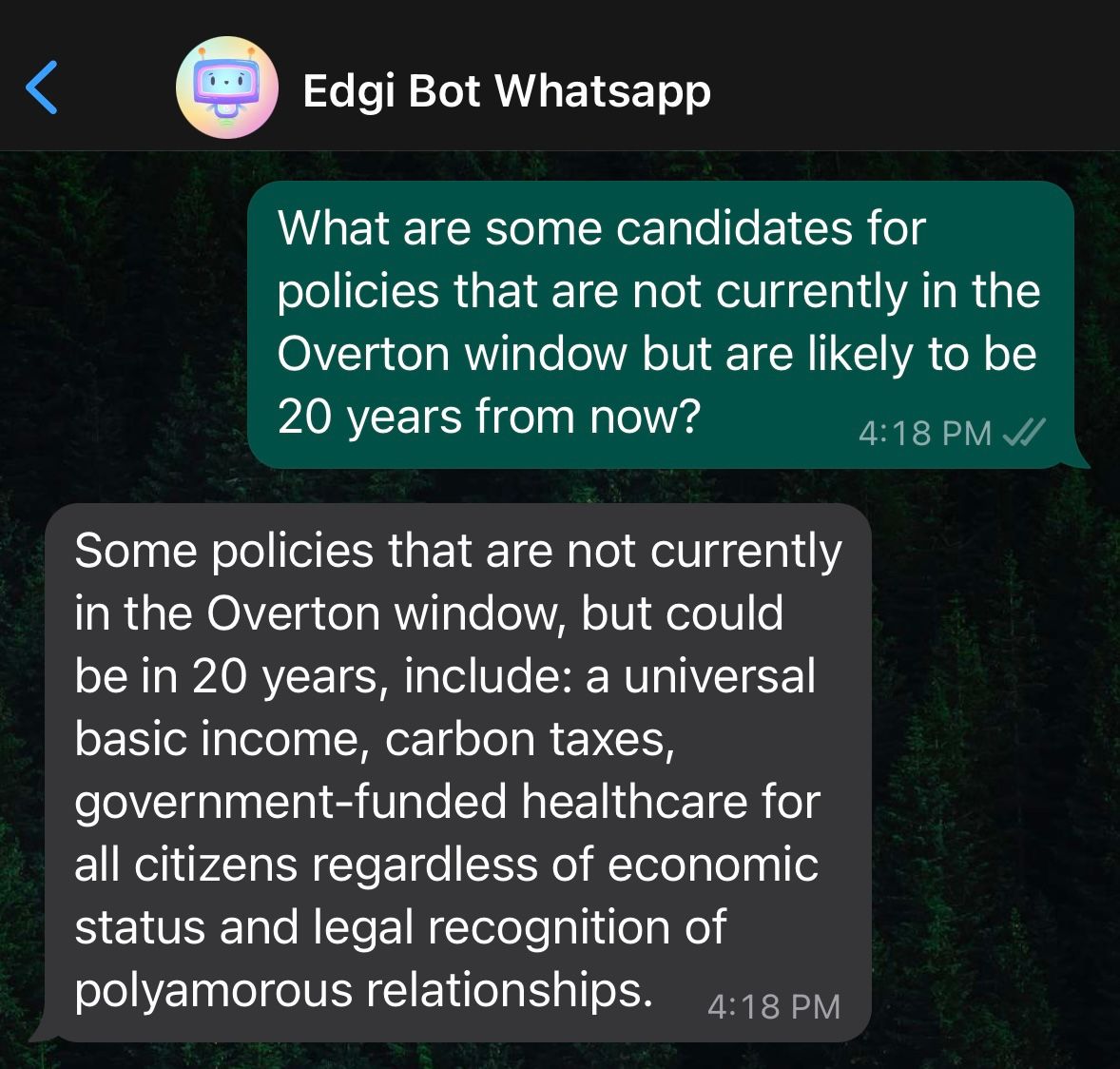On the Overton window
The Overton window, sometimes called the window of discourse, is a political theory that describes the range of policies or ideas that are considered acceptable by the mainstream population at a given point in time. It’s a useful way to filter for the ideas that politicians in democracies are likely to get behind if they hope to gain significant traction.

In 2008, even though the tide was clearly turning in the direction of LGBTQ rights, approval of same-sex marriage had not reached the tipping point and was not within the Overton window at a national level. Perhaps surprisingly, even 50%+ of voters in California chose to vote for a ban on same-sex marriage that year. As it turns out, the Democratic party front-runners for President, Hillary Clinton and Barack Obama, both chose the safe option not to endorse same-sex marriage. By 2012, both their positions had evolved to match the quickly shifting public opinion.
Social norms regarding interracial marriage serve as an even starker example over a longer period of time. It’s hard to believe now, but 65 years ago in 1958, less than 5% of Americans were in favor of interracial marriage.

It would have been considered political suicide to openly support interracial marriage back then. Today, the opposite is true and you’ll find it hard to think of politicians opposing interracial marriage even if they are considered strongly conservative on other policies.

What causes the Overton window to move, sometimes dramatically? That’s up for debate but here are a few hypotheses:
- Media influence — what we consume is what we think
- Crises — 9/11 and COVID-19 are good examples of events that made enhanced security and the wearing of masks commonplace and normal
- Schools, workplaces, religious institutions — anywhere we spend a lot of time has the potential to influence our opinions
- Advocacy and activist groups — arguably the biggest reason for the change in public opinion on race, gender, and sex
- Politicians — this is rarer, but sometimes charismatic leaders display the ability to move public opinion; arguably they’re simply tapping into latent energy
I’ll leave you with a thought experiment. If you fast forward 20 years, which policies and ideas will have shifted the most based on changes in public opinion, and in which direction? If you’re struggling to think of examples, consider gun rights, universal basic income, and the consumption of meat.
There are also some interesting discussions to be had about circumstances in which the Overton window becomes more or less correlated with actual policy positions, as well as the direction in which opinions move, but let’s save that for another time.
